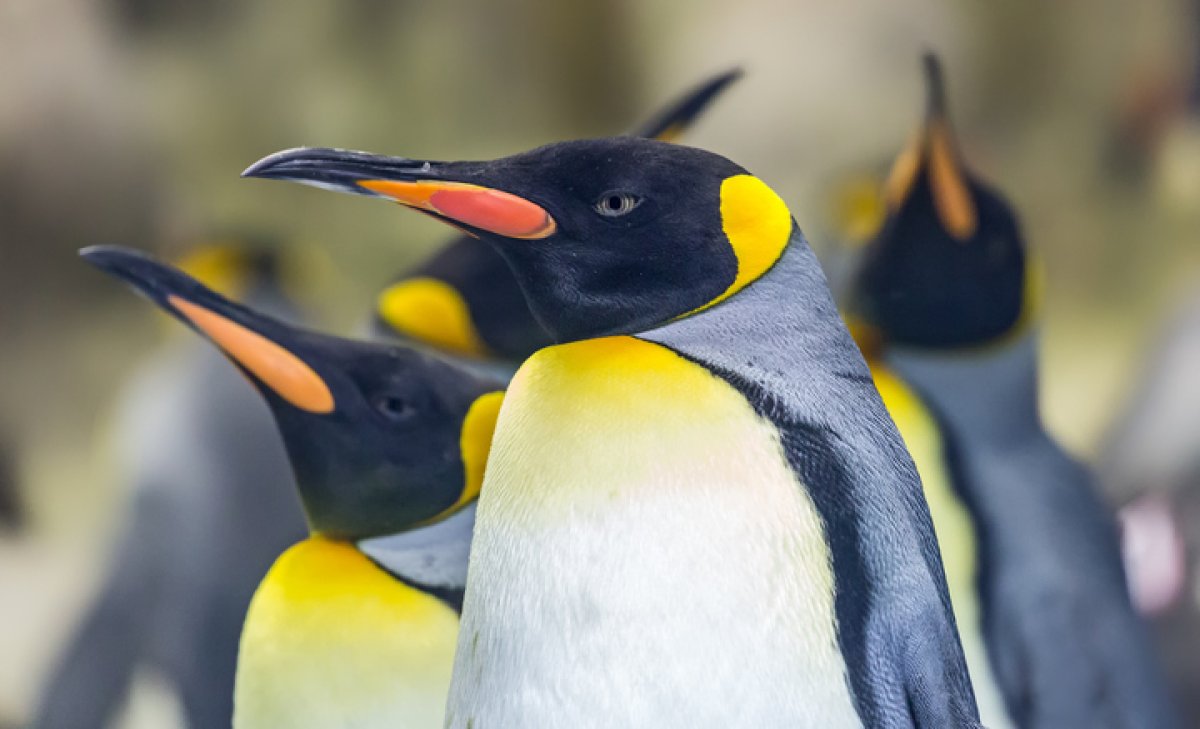King penguins in a colony in Antarctica emit so much nitrous oxide—also known as laughing gas—from their feces that a team of researchers studying them went "cuckoo" from the fumes.
The scientists, from the University of Copenhagen in Denmark, were investigating the effect of glacier retreat and penguin activity on greenhouse gas emissions. To do this, they went on a research trip to South Georgia, an island in the southern Atlantic ocean, where the world's largest colony of king penguins live—around 150,000 breeding pairs, the team notes.
Penguin feces, known as guano, is known to release huge amounts of nitrous oxide (N2O). This is a potent greenhouse gas, with a warming effect around 300 times that of carbon dioxide (CO2). The N2O is created when the penguins eat fish and krill that have absorbed large amounts of nitrogen via phytoplankton. Nitrogen is released from the guano, and the soil it lands on converts it into N2O.
As well as being a greenhouse gas, N2O is also used as a sedative by dentists, and some people use it recreationally because of its psychoactive effects. These include making the user feel euphoric and relaxed, and causing fits of laughter.
"After nosing about in guano for several hours, one goes completely cuckoo," lead researcher Bo Elberling said in a statement. "One begins to feel ill and get a headache. The small nitrous oxide cylinders that you see lying in and floating around Copenhagen are no match for this heavy dose, which results from a combination of nitrous oxide with hydrogen sulphide and other gases."
As a greenhouse gas, most N2O comes from agricultural soil management. The U.S. Environmental Protection Agency says N2O accounts for 6.5 percent of all America's man-made emissions. Elberling said N2O emissions at the colony are around 100 times higher than a newly fertilized field in Denmark. "It is truly intense," he said.
Findings from the research trip have been published in the journal Science of the Total Environment. In it, the team say that as glaciers retreat, more land will be exposed and this is likely to alter the level of greenhouse gasses emitted from these regions.
"Penguins have been considered to be an ideal 'bio-indicator' of ecosystem and environmental changes, as changes in populations and colonies reflect direct and indirect ecological responses to climatic changes," they wrote. "Changes in penguin colonies, penguin activity and the associated addition of guano are known to significantly influence terrestrial soil and ecosystem processes and thereby can turn soils into [greenhouse gas] emission hotspots."
The scientists looked at changes to N2O, CO2 and methane (CH4) by analyzing soil samples taken from different areas of the island. These were incubated and assessed for greenhouse gas production and consumption. Findings showed soil was heavily influenced by penguin activity. In areas penguins frequent, there was increased CO2 and N2O production, as well as a fall in CH4 consumption. When they applied penguin guano to soil in controlled experiments, they also found a "significant increase" in CO2 and N2O, and a drop in CH4 consumption.
This, they suggest, shows the increase in nutrients that penguin guano provides leads to more greenhouse gas production. If penguins populations expand as glaciers retreat and more land becomes ice-free, there could be an increase in greenhouse gas emissions, they conclude.
"While nitrous oxide emissions in this case are not enough to impact Earth's overall energy budget, our findings contribute to new knowledge about how penguin colonies affect the environment around them, which is interesting because colonies are generally becoming more and more widespread," Elberling said in a statement.

Uncommon Knowledge
Newsweek is committed to challenging conventional wisdom and finding connections in the search for common ground.
Newsweek is committed to challenging conventional wisdom and finding connections in the search for common ground.
About the writer
Hannah Osborne is Nesweek's Science Editor, based in London, UK. Hannah joined Newsweek in 2017 from IBTimes UK. She is ... Read more
To read how Newsweek uses AI as a newsroom tool, Click here.








